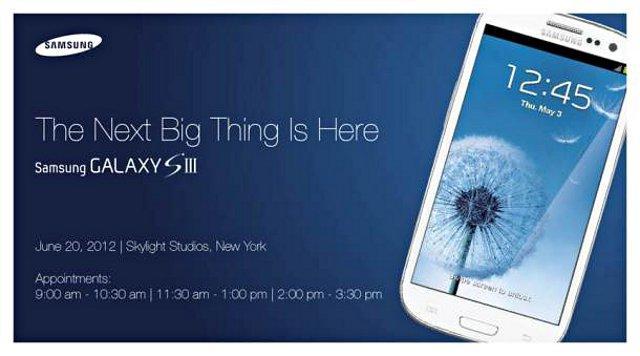
The retail industry is a tricky one for sure. Buying low and selling high is what its all about, and although I generally refer to our industry as "the smartphone industry" it is just a branch on the coporate retail tree. In part the mobile industry's job is to help push technological limits further than they've ever been, but in the end it's mostly just about selling a product, and hopefully selling a lot of it. With smartphones being one of the most competitive markets out there right now in retail, there are a lot of marketing campaigns out there that are trying to sway you in their favor. Not only are the marketing campaigns out there, but they're getting pretty fierce.
So how much does the hype get you hyped up?
I've seen two main types of hype happen in this industry: the kind that comes from professionals and the kind that stems from consumers. Both are extremely contagious. The hype that comes from a professional level are the stunts that come straight from a designated marketing team. They come to us in the form of advertisements on TV, across the Internet, even on billboards and buses across the city. Samsung, Apple and Microsoft are probably the three that I notice get the most air time, which makes sense given how big each company is. All three are somewhat aggressive when it comes to their marketing. But you kind of have to be in order to get people to notice you, and so far it seems to be working.
Samsung has specifically been praised for their marketing, not only given the amount of ads they've placed but also because of the quality of the ads, as well as other stunts like their release events. The Galaxy S 4 event particularly sticks out in my mind as being memorable because they didn't just use a cut-and-dry presentation of the highly anticipated device. They turned it from being another mundane event to being a show that drew people in; they used real life events and acted them out, and gave anybody watching the event a way to immerse themselves in the presentation. They did a damn good job of making their phone look good through means of marketing. I mean, it helped that they actually released a nice handset as well, but without that marketing campaign I do wonder if the Galaxy S 4 would have done half as well as it did.
And then you have the other half of the spectrum, the half that's governed by the Internet and the forums. Honestly, this side of the spectrum isn't a whole lot better than a company trying to sell their own product, because you don't know who you can and can't trust in the end. You know that Samsung is going to tell you that their product is the next big thing, or the best thing out there. You know Apple is going to tell you that their phone is the next best thing out there. Are you going to buy into that? Perhaps, but if you do you at least know the risks of doing so because what company is actually going to go out there and tell you, "Hey, this phone is a real POS, but you'd make our day if you'd slap down $500 for it anyway." So you think to yourself, why don't I just go check the web and see what reviewers and customers are saying about the product? Not so fast, skippy. That's the tricky part about the Internet. You think people would do the honest thing, but it's been proven that some companies like to hire false advertisements and accusations against other companies. Once you get one person on the bandwagon, it's not hard to get a bunch of others to follow.
"Did you see what so-and-so said about their experience with [enter name of phone here]?"
"Yes, and if they had that bad of an experience I don't want that phone."
"Yeah, me neither."
"Well if none of you guys are getting it, then neither am I."
"I actually think I might still get it, guys."
"I CAN'T WAIT UNTIL YOU RETURN YOUR PHONE BECAUSE YOU HATE IT SO MUCH!"
Hype. Negative hype, positive hype, it's all hype. It's dangerous. I'm all for hearing opinions, but I like to form my own opinion as well. Just like with my experience with the Galaxy S 4 and the HTC One, I didn't expect everybody who ever wanted to get the Galaxy S 4 to drop the idea completely because I had a less-than-stellar experience. It was just an experience that I felt was share-worthy. There are plenty of people out there who would rather have the GS4 than the HTC One.
Hype can be fun; thrilling, even. But it can also be dangerous. My best advice before getting in on any hype is to take it all with a grain of salt, because you might be surprised by how your opinion on something really is after you try it. I'm not saying that if a bunch of people say you'll hate a device that it means you won't hate it. You might still hate it. The same goes for the other way around; the majority might say you'll love a device and it turns out you can't stand a device. It's just best to get out there and form your own opinion to the best of your ability. It's interesting to take part in the discussion, but I would try not to let the hype get to you until you have a chance to form your own thoughts and opinions.
Readers, how much does hype get you hyped? Does hype sell you on a product, or do you need to see in order to believe?